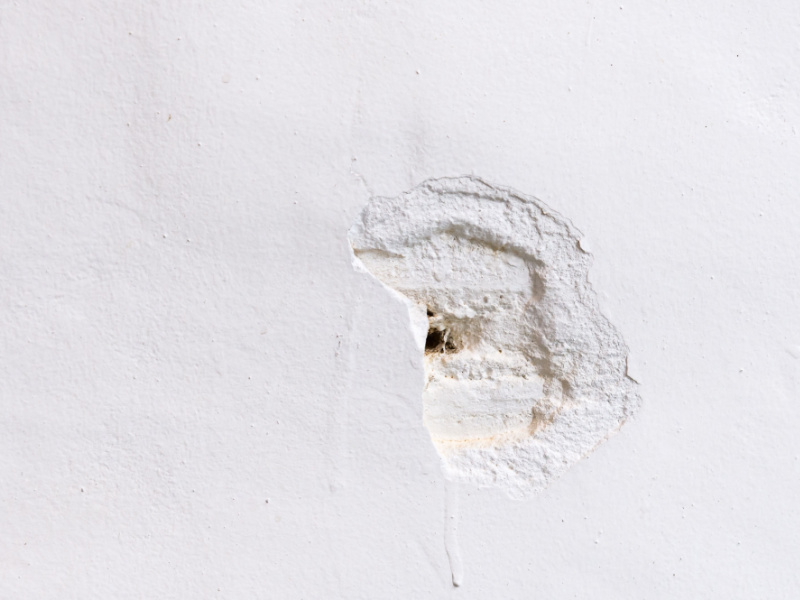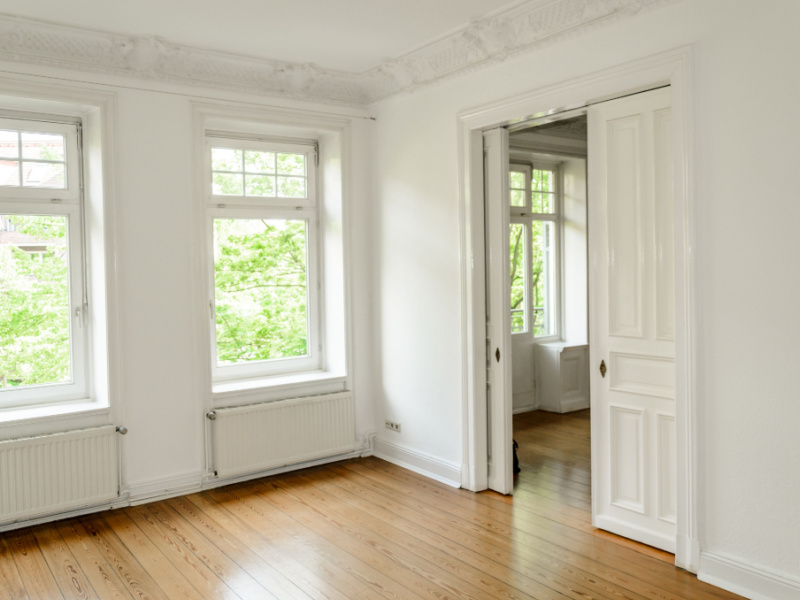Security Deposit
A security deposit is a sum of money that landlords use in case their renters damage the rental property or fail to pay rent.

A security deposit is a sum of money that landlords use in case their renters damage the rental property or fail to pay rent.

A security deposit is a sum of money that renters have to provide to their landlord or property manager before moving into a new apartment. It serves as a protective measure in case tenants cause damage to the apartment or don’t pay their rent.
Have more questions about security deposits and how they work? You’re in luck.
Landlords can use the security deposit in order to protect themselves against financial losses they might suffer from their tenant’s behavior, such as repairing damage to the apartment or covering rent payments.
Arguably, the security deposit also increases the tenant’s desire to keep their apartment in good shape, and it incentivizes against negligence.
The good news is that if you fulfill the conditions in your lease, pay your rent on time, and don’t accidentally damage your rental (beyond expected wear and tear!), you are entitled to receive your full security deposit back once you move out.
Pro tip: Take a closer look at your lease agreement to check the exact terms around your security deposit, such as where the money will be held, and reasons for any potential deductions.
The simple answer is: A security deposit is whatever amount you agree with your landlord on. There are limitations though, depending on your state’s laws. In many states the maximum amount your landlord can ask you to pay is equivalent to one, two, or three months of rent.
In New York, landlords can require their tenants to pay a security deposit that equals up to one month’s rent, whereas in California, it’s either two or three months (depending on whether the apartment is furnished or not, as one downside of furnished rentals is they may come with a bigger security deposit).
And to complicate things further: In some states such as Texas and Ohio, there are no regulations regarding the maximum security deposit amount.
Apart from the state you live in (and how scrupulous your landlord is!), here are some additional factors that might influence the amount you need to pay as a security deposit:
So far, so good. But what happens if your landlord decides to raise your rent? In this case, you might have to top up your security deposit by the same percentage. (However, make sure to check if you live in a rent-stabilized apartment…if you do, your landlord is only able to raise your rent by a certain amount in any given year.)

From when you need to pay it to how you can get your deposit back, here’s what you need to know about how security deposits work.
You need to pay the security deposit before you move into your new apartment, before you receive your new set of apartment keys.
The payment itself can take on several forms: You can either initiate a money order or electronic payment, or hand over a good old cashier’s check to your landlord.
It depends on the state you live in. However, it is common in many states that the security deposit is held in an interest-bearing account that is separate from your landlord’s daily account, but that he or she can access in certain justified cases.
After receiving your deposit, most states require the landlord to provide a receipt to you stating the amount of the deposit as well as details of the account where the security deposit is held. In many cases, you’re also entitled to receive back any interest that was accrued on the deposit during the term of your lease.
This again depends on the state laws and can range from between 14 and 60 days after your lease is up.
Should the landlord decide to keep your deposit, they have to provide an explanation as to why they’re doing so. In some states, they have to provide an itemized list of damages and corresponding repair receipts.

There are a few scenarios in which your landlord might be compelled to keep a portion of your security deposit—or even the full deposit.
Pretty self-explanatory. However, damages renters cause to the apartment must go beyond normal wear and tear. Anything that’s a result of simply living in the apartment—faded wallpaper, for instance, or normal signs of foot traffic on your parquet floor—wouldn’t be a reason to keep a deposit. If you accidentally knock a big hole in the wall or break your bedroom door, your landlord might keep parts of the sum to cover the cost of repairs.
If your cat got too excited and used the door frame as a scratching post, you can expect less of the original security deposit back.
If your lease is up, and you’re overdue on rent, your landlord will probably subtract the respective amount from your security deposit.
Once the time to move out has come, you need to make sure that the apartment is spotless (or at the very least, in the same shape it was in when you moved in—this is something you can discuss with the landlord). If you’ve left the place in a bad condition, for instance very dirty or messy, your landlord might subtract some deposit money for cleaning up and getting rid of your mess.
Even if the landlord does use some money for repairs and a cleaning crew, they should transfer the remaining sum back to you.

If all goes well, you should get your deposit back automatically. That’s the best case scenario.
However, there are steps you can take to ensure that everything will go according to plan:
But what happens, if the landlord doesn’t agree to pay back your (well-deserved) security deposit?
If your landlord or management company is withholding a deposit that you’re entitled to, there are several steps you can take.
Please note: Lemonade articles and other editorial content are meant for educational purposes only, and should not be relied upon instead of professional legal, insurance or financial advice. The content of these educational articles does not alter the terms, conditions, exclusions, or limitations of policies issued by Lemonade, which differ according to your state of residence. While we regularly review previously published content to ensure it is accurate and up-to-date, there may be instances in which legal conditions or policy details have changed since publication. Any hypothetical examples used in Lemonade editorial content are purely expositional. Hypothetical examples do not alter or bind Lemonade to any application of your insurance policy to the particular facts and circumstances of any actual claim.